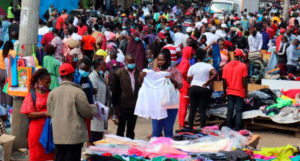
In the face of soaring interest rates, traders are seeking alternative avenues for expansion and restocking, turning increasingly to supplier credit, according to a recent survey.
The Africa Trade Barometer report from Stanbic Bank reveals a significant shift in trading practices. In May 2023, approximately six out of ten companies in Kenya were relying on credit arrangements with suppliers, compared to four in September 2022.
Interestingly, this trend is not limited by business size, indicating a widespread challenge in obtaining loans in kenya, especially in an economic landscape where consumer purchasing power has dwindled.
The report’s analysts note that even small businesses are now embracing supplier credit, a departure from pre-Covid times when larger corporations predominantly utilized this source of funding.
This shift is attributed to the difficulties faced in accessing finance through traditional channels, primarily due to the persistent increase in the Central Bank Rate (CBR).
Over a year leading up to June 2023, the Central Bank of Kenya raised benchmark interest rates by three percentage points, aiming to curb the surging costs of goods and services.
Raising the central bank rate makes borrowing more expensive, serving as the foundation upon which banks calculate their margins and assess the risk profiles of individuals and businesses when setting loan rates.
This monetary policy tightening has significantly escalated the cost of commercial borrowing to its highest levels in almost seven years, adding to the financial burden on businesses.
As a consequence of these rising borrowing costs, traders are adapting new strategies, relying more on credit from suppliers to sustain their operations and navigate the challenging economic environment.